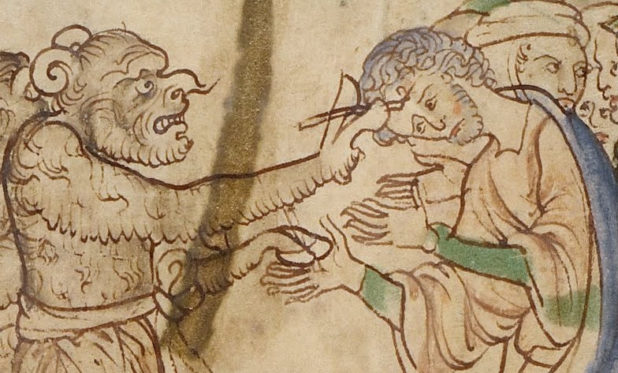People entering pubs, restaurants, and cafes will be asked to show their bar codes in order to fight the Absolute Doom virus.
This is being introduced as something optional, as a guideline for these businesses, but it is highly likely to end up being mandatory either explicitly because the government orders it, or because most businesses will refuse to serve people who don’t scan their coronavirus tracking app bar codes “to protect their customers.”
I’m not saying this is literally the Mark of the Beast.
I’m just saying this literally sounds an awful lot like the Mark of the Beast.
The long-awaited mobile tracing app will finally be launched today, three months after it was promised.
Pilot schemes will begin within days on the Isle of Wight – where the first app was tested and failed – alongside one other location and among volunteers.
The public will be urged to scan barcodes at pubs, cafes and restaurants to provide a ‘virtual diary’ of their recent movements.
If another customer in a venue at about the same time tests positive for the virus, the phone owner will be alerted and encouraged to isolate for 14 days and book a test.
It’s drastically different from how the original app was designed to work, which only used Bluetooth connections to create a log of other phones nearby.
That design was proven to be flawed after months of development because it failed to detect if people came into close contact with other phones.
Professor Christophe Fraser, a scientific adviser to the Department of Health from Oxford University, told the BBC: ‘The app should enable us to return to more normal daily activities with the reassurance that our contacts can be rapidly and anonymously notified if we get infected.’
The former system was hailed as a crucial to stamping out the coronavirus in the population.
It was devised by NHSX – the NHS’s technology arm – was abandoned in favour of one provided by Apple and Google.
Apple and Google’s system is already used in several countries across the world but the government was slow to adopt it.
The app will still use Bluetooth technology to tell users if they have come into close contact with someone who has the virus.
It is understood the app will only detect other phones running the app, therefore relies on masses of the population downloading the app for it to effectively map outbreaks.
NHSX thinks more than 60 per cent of the population needs to use the app for it to be effective.
But experts at the University of Oxford told the BBC 80 per cent of smartphone users (56 per cent of the population) would have to use it for optimum results.
This time round, the app has the addition of bar code scanning so that users can receive notifications via the app of outbreaks at venues.
The app will also tell people roughly how many times they have been in close contact with someone who has the app – even if they are not infected.
They can then modify their behaviour and observe better social distancing to further reduce their infection risk.
This whole “be afraid of viruses, practice social distancing” thing is about modifying people’s behavior.
It isn’t about public health, because coronavirus is about as dangerous as the flu and its death toll is being blatantly hoaxed.

